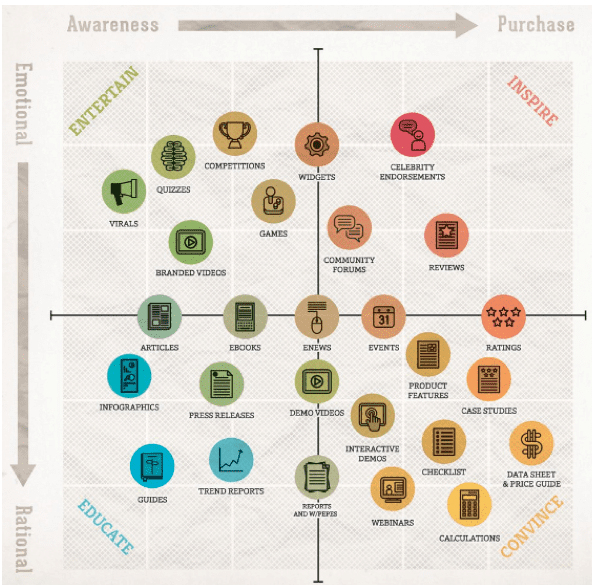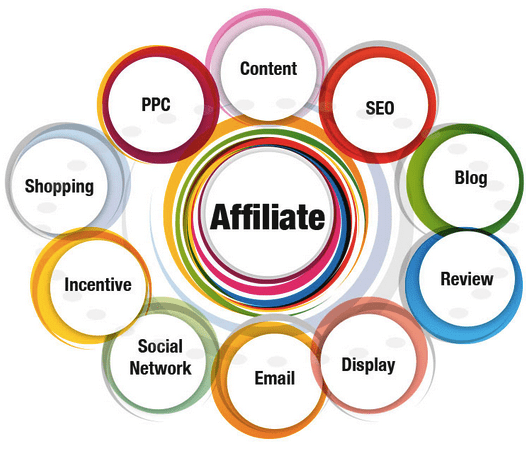Let your content do the talking
Affiliate marketing has been seen for a long time as one of the most effective ways of generating income on the Internet. Basically it is a way for a website to generate income by attracting people to visit other businesses and purchase their goods and services. If someone does purchase something through an active affiliate link, then the owner of the link receives a percentage of the profit.
For example, if you have a website about building and fixing cars, you may include an affiliate link for a company selling car parts or something else related to cars. When the visitor on the website clicks on the affiliate link, they will be taken to the website that is selling the car parts, and if they make a purchase, the car part company will recognize that it was because of the affiliate link, and share the profits as a way to say thank you. So if you have a lot of traffic to your website, affiliate advertising can be a real money maker. Affiliate links can be embedded in text, or can be more like an advertisement banner on the side or top of a web page.
Is It All It’s Cracked Up to Be?
Like any marketing strategy, affiliate marketing and the use of affiliate links is not without its pros and cons. If they were really that simple, then everyone would be raking it in and no one would be working the 9-5 (and let’s face it, those workers are still important). In fact, I would go as far as to say that sometimes removing all traces of affiliate marketing can be a better financial move then putting them up in the first place.
Pros of Affiliate Marketing
- No sizable investment required - just need an active website with traffic.
- Commissions are automatic and instant.
- Income is generated 24/7, not only when online.
Cons of Affiliate Marketing
- Merchants may close down or cancel the affiliation without warning and without paying outstanding commissions.
- Link hijackers can effectively steal the commissions.
- Potential for legal issues - false advertising and unlawful use of logo's and brands.
What the Experts Say About Affiliate Marketing
Having a look at the different articles about affiliate marketing, the expert opinions are really mixed. Some clearly love the idea, however there is a definite negative vibe among many. At the end of the day, proper management is most important when it comes to affiliate marketing, and really, any sort of monetization scheme online. If you are unsure whether it is a good or a bad idea, then I would suggest staying away and letting your content do the speaking.
Some of the sources that offer some interesting insights include CopyBlogger, and this Adam Riemer Marketing article about the relationship between affiliate programs and SEO success.
Removing Affiliate Links to Assist SEO
One issue that many people don't consider when diving into the affiliate marketing pool, is how it will affec
When Google penalizes you they basically cause your website to move from one of the first few hits on Google when your key words are searched, to way down (so suddenly you move from being hit number 5 to hit number 250). Removing the offending affiliate links is the only way to remove the penalty and fix the SEO. For more in-depth information as to how affiliate links can hurt SEO, read this article on Niche Pursuits.
Let Your Content Do the Talking.
As for whether you should remove your affiliate links, it’s really a matter of opinion and personal preference - there are so many different types of websites that it is impossible to 
Real Life – Pinterest
Pinterest are a real-life example of a website that made the decision to remove all affiliate links in 2015, and this was not a decision that was taken lightly. A lot of bloggers use Pinterest as a source of income (through the addition of these affiliate links), and by removing them, they risked losing a large percentage of their visitors to the site. However, because the links were not being managed properly (as they were simply added by bloggers), they were ending up as spam and ruining the reputation of the Pinterest brand. Pinterest had always been about displaying great and innovative pictures, tutorials and ideas, and the influx of affiliate links meant that it was becoming more about the revenue marketing then it was about the content.
Final Word
Affiliate marketing and the use of affiliate links is by no means a negative thing, but like anything there is a time and a place for it. Unfortunately, they are turning up on every website they can, even if they are not appreciated by visitors or even relevant to the page. So rather than make the visitors to your site feel like they are talking to a sales person, let your content do the talking, and build your online presence and brand the reputable and respected way – by simply offering great content.
source http://www.smartinsights.com/affiliate-marketing/unexpected-benefits-removing-affiliate-links/


 Thanks to Stacey Marone for sharing their advice and opinions in this post. Stacey Marone is a freelance writer for
Thanks to Stacey Marone for sharing their advice and opinions in this post. Stacey Marone is a freelance writer for
No comments:
Post a Comment